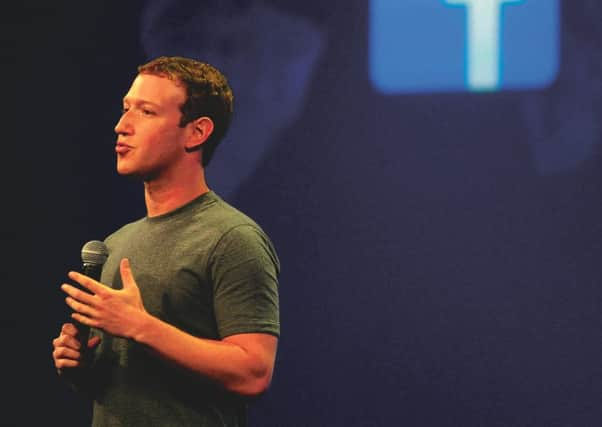Facebook users need honesty, but data mining is here to stay


Facebook today prefers to focus on a different message: bringing people together; sharing; and building a global community. And perhaps social media does help us do that. It connects us with people around the world, allows us to see into their lives and (potentially) breaks down social and cultural barriers.
But the data issue is at the core of what Facebook is about. It is not a social network; a publisher; or an agent for social change. It is a data mining company.
Advertisement
Hide AdAdvertisement
Hide AdWe willingly, but not actively, give our data to Facebook in exchange for using its platform. Our name, age, religion, school, university, birthday, favourite musicians, books, interests, photos and locations.
The story last week around the use of Facebook data by Cambridge Analytica is one thing. The bigger story is the public awakening about how much data is now available and what it can be used for.
The public has been aware of concerns around the use of information on social media, but it hasn’t resonated until now. This is partly because many people simply don’t care. If Facebook knows I buy a coffee every morning from Costa in George Square then does it really matter? They know my age – so what? I checked in at a hotel in London, big deal.
Ask readers about potholes or dog fouling and you are likely to get a far bigger mailbag than on the issue of data protection.
The other reason is that consumers seem to think about privacy on Facebook in terms of whether their ex-boyfriends, parents or employers can view their photos. So, we play with our profile privacy settings when the real game is being played elsewhere.
This apathy around data protection means the scandal is likely to dissipate for users and an advertiser exodus is unlikely. The #deletefacebook hashtag has yet to properly take hold.
The truth is deleting Facebook is only part of the solution for those eager to protect their privacy. Our smartphones can track our movement across the world, apps can share information in the background and the websites we visit track us through cookies.
Many smaller businesses use data reasonably and sensibly to target products to existing customers. We are in a world where data is a reality. Consumers have a responsibility to take a greater interest in what they are sharing. Governments need to find a way to protect the interests of the public, but crucially without forcing unnecessary restrictions and bureaucracy on small business. And our tech companies need to be straight with us.
Perhaps then the Cambridge Analytica story can be seen as a positive watershed on how our data is used.